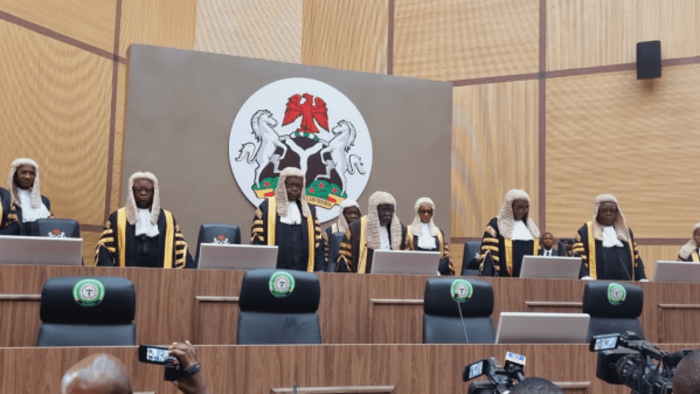In a landmark ruling on Friday, the Supreme Court upheld the legality of the Economic and Financial Crimes Commission (EFCC), dismissing a suit brought by 13 states challenging the constitutionality of its establishment.
A seven-member panel of the apex court, presided over by Justice Uwani Abba-Aji, delivered a unanimous judgment affirming that the EFCC Establishment Act of 2002 did not require ratification from state Houses of Assembly. The court ruled that the Act, passed by the National Assembly, is binding across all states.
Justice Abba-Aji clarified that the EFCC Act was not a treaty but a convention that the National Assembly could lawfully adopt.
“In a federation like Nigeria, the units do not possess absolute powers. Acts of law enacted by the National Assembly, such as the EFCC Establishment Act, are binding on all states,” the court stated.

The court further ruled that no state could enact competing laws on issues already legislated by the National Assembly, including corruption and money laundering.
The lawsuit, initially filed by 16 states, sought to nullify the EFCC Act on the grounds that it contravened Section 12 of the 1999 Constitution. The plaintiffs argued that the establishment of the EFCC lacked the requisite approval of state Houses of Assembly.
Several states, including Ondo, Edo, and Oyo, initiated the legal action, but some, such as Anambra, Ebonyi, and Adamawa, later withdrew. The Federal Government, represented by the Attorney-General of the Federation (AGF), Lateef Fagbemi (SAN), countered that the EFCC Act was duly enacted under Section 15(5) of the Constitution.
“The EFCC was validly established to combat corruption and financial crimes, in line with the Constitution’s directives,” Fagbemi argued.
This judgment strengthens the EFCC’s position as Nigeria’s leading anti-graft agency, with the court dismissing arguments that it was improperly constituted. It also reinforces the powers of the National Assembly to legislate on matters of national importance without requiring state-level approval.
The apex court’s decision effectively resolves all legal challenges to the EFCC’s establishment, ensuring that its operations continue unimpeded.




